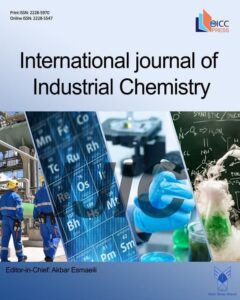Mathematical Modeling, Simulation of Reaction, and Regeneration Sections of Methanol to Olefin Process: Review
Authors
Abstract
Light olefins, especially ethylene and propylene, are essential intermediates in the petrochemical industry, which are used to produce polyethylene, polypropylene, and other essential products. Olefins can be produced using different processes and raw materials. The method of converting methanol to olefins is one of the processes that has received much attention in recent years. The purpose of this research is to review the mathematical modeling of the reaction and regenerator sections, hydrodynamic simulation, heat transfer, and reaction in the fluidized bed reactor using computational fluid dynamics (CFD), large eddy simulation (LES), for methanol to olefin process (MTO). It is also an examination of effective parameters such as reactor length, reactor flow rate, product distribution, optimal product distribution scenario, and flow rates in a fluidized bed reactor. The increase in the number of reactor stages and the thickness of the reactor stage in the stage circulating fluidized bed riser decreased the ethane yield but increased the yield of propene as compared to the conventional fluidized bed riser.



